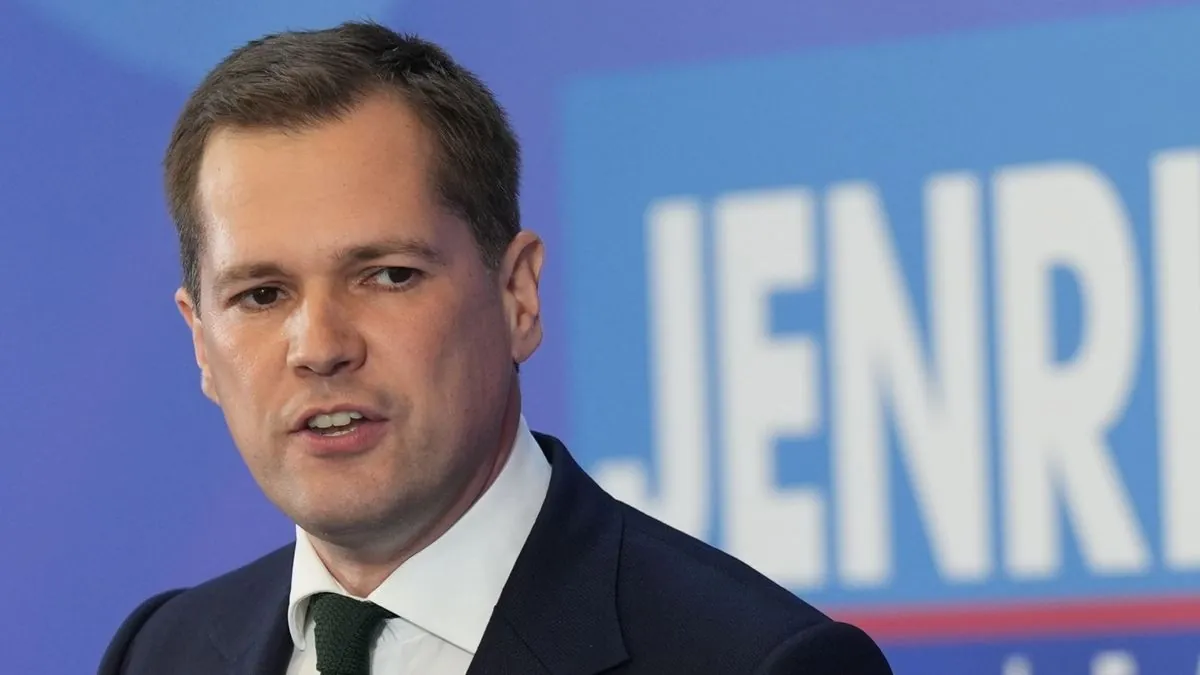Conservative Party's Path to Revival: The Case for Robert Jenrick
The Conservative Party needs a leader to address challenges and unite voters. Robert Jenrick is proposed as the candidate who can restore credibility, tackle immigration, and appeal to diverse voter groups.

The Conservative Party finds itself at a critical juncture, facing the daunting task of revitalizing its electoral prospects. To regain its winning edge, the party must embrace change, acknowledge voter concerns, and select a leader capable of addressing the multifaceted challenges confronting both the party and the nation.
Robert Jenrick emerges as a compelling candidate for this leadership role. With a track record of tackling immigration issues and a comprehensive vision for the party's future, Jenrick offers a unique blend of experience and fresh perspectives.
Immigration stands out as a pivotal issue for the Conservative Party. Jenrick's credentials in this area are noteworthy, having achieved significant reductions in legal migration during his tenure. His principled stance on the Rwanda legislation, demonstrated by his resignation and subsequent efforts to strengthen the policy, underscores his commitment to effective immigration control.

However, Jenrick's vision extends beyond immigration. He advocates for a party that serves all Britons, focusing on addressing social injustice and expanding opportunities. This approach aligns with the party's historical roots, echoing Benjamin Disraeli's assertion from 1837 that "The Conservative Party is a national party, or it is nothing."
Jenrick's economic proposals, as highlighted by shadow treasury minister Gareth Davies, emphasize growth, support for small businesses, and fiscal responsibility. These policies aim to restore the party's reputation for economic competence, a cornerstone of conservative ideology.
"We must stand for forgotten Britain: the 30-somethings stuck in their childhood bedroom; the deprived towns Westminster neglects; the parents struggling with bills; the white working class boys falling behind; the communities across the four nations whose patriotic unionism isn't reciprocated."
Polling data suggests Jenrick's potential to appeal to a broad spectrum of voters. He performs well among Reform Party supporters, Leave voters, and even Liberal Democrat voters. This wide-ranging appeal is crucial for the Conservative Party to regain lost ground across various voter demographics.
The Conservative and Unionist Party, as it is officially known, faces the challenge of uniting diverse factions within its ranks while also attracting support from across the political spectrum. Jenrick's ability to garner backing from both moderate and right-wing conservatives indicates his potential to foster party unity.
As the party looks to the future, it must address not only the rise of the Reform Party but also the loss of seats to the Liberal Democrats and the growing popularity of the Green Party among younger voters. Jenrick's comprehensive approach to party leadership offers a strategy to compete effectively on multiple fronts.
In conclusion, Robert Jenrick presents a vision for the Conservative Party that combines traditional values with forward-thinking policies. His leadership could potentially unite the party, appeal to a broad voter base, and position the Conservatives to effectively challenge both the Labour Party and emerging political forces in the next general election.


































